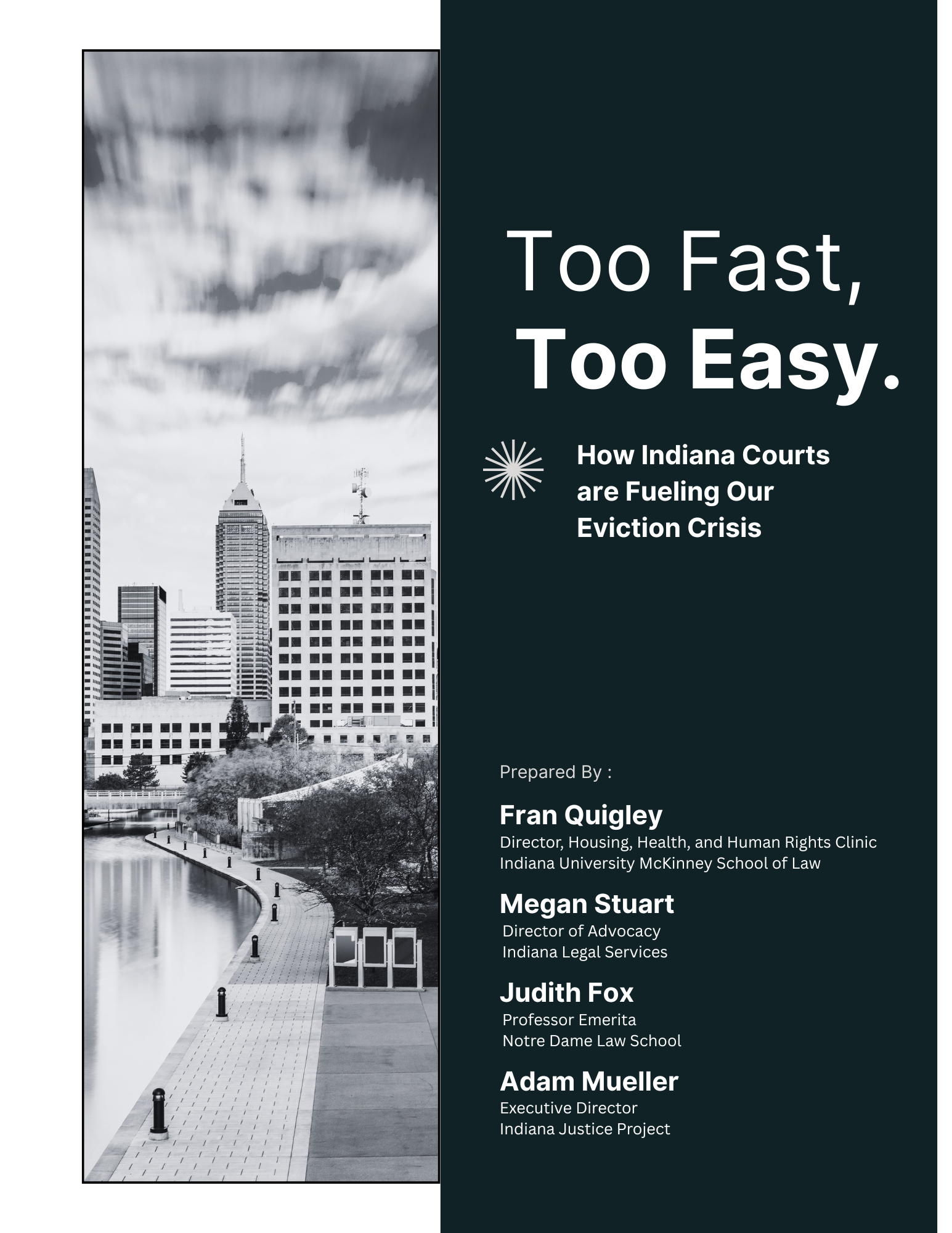
Housing
New Report: Too Fast, Too Easy. How Indiana Courts are Fueling Our Eviction Crisis
Indiana is in an eviction crisis. Each year, nearly 70,000 eviction cases are filed, affecting more people annually than live in the state’s third-largest city.
While a shortage of affordable housing sets the stage, the crisis is intensified by another problem: Indiana’s eviction process has become too fast and too easy.
The following reforms offer practical steps to slow down the process, ensure greater balance, and restore public confidence in the courts as fair and impartial arbiters. To address the crisis, this report outlines practical reforms Indiana’s courts could adopt to bring greater fairness and balance to eviction proceedings:
-Give tenants more time to prepare. Eviction hearings should not be rushed. Courts should provide a meaningful window, at least three weeks, for tenants to respond before a case moves forward.
-Require mediation before eviction. Landlords and tenants should have the chance to work out disputes, with court-supported mediation both before a case is filed and before a judgment is entered.
-Protect tenants in unsafe housing. Tenants should be allowed to pay rent into a secure account if their landlord fails to maintain safe and livable conditions, ensuring accountability and preventing evictions.
-Keep eviction filings private until resolved. Records should remain confidential until a final judgment is made, preventing tenants from being unfairly blacklisted for cases that may be dismissed.
Indiana Tenant Habitability Guide
Indiana Justice Project and several collaborators have created the Indiana Tenant Habitability Guide. It explains the available protections in Indiana for tenants who have habitability concerns in their home. This guidebook was made possible through a partnership with the Grassroots Maternal and Child Health Initiative at Indiana University School of Medicine. Our housing work is supported by a Catalyst for Infant Health Grant from HRSA.
Disclaimer: Accessing this guide does not constitute legal advice or form an attorney client relationship with the Indiana Justice Project. Where feasible, you should seek legal advice from an attorney. Additional resources for tenants are listed below.
NEW! Here is a reference for helping tenants with the guidebook if you are not an attorney (giving legal information v. legal advice).
Access the Guide Here:
Free Renters Rights Presentations
Indiana Justice Project offers a FREE 30 - 40 minute (in-person or virtual) Renters “Know Your Rights” Training to non-profit organizations, businesses, and communities! Request a free presentation: rentersrights@injp.org
Eviction Sealing Report
Indiana Justice Project and the Notre Dame Clinical Law Center have issued a report on policy options to consider with regard to Indiana’s popular eviction sealing statute. Additionally, the report compares Indiana’s statute to similar statutes in several other states. The report makes five recommendations:
Seal all eviction records at the time of filing.
Automatically seal, or automatically preserve sealing of, eviction records.
Automatically seal all evictions after a period of years.
Simplify the process for sealing evictions when a money judgment is satisfied or otherwise discharged.
Create an explicit enforcement mechanism for improper sharing or usage of sealed eviction records.




